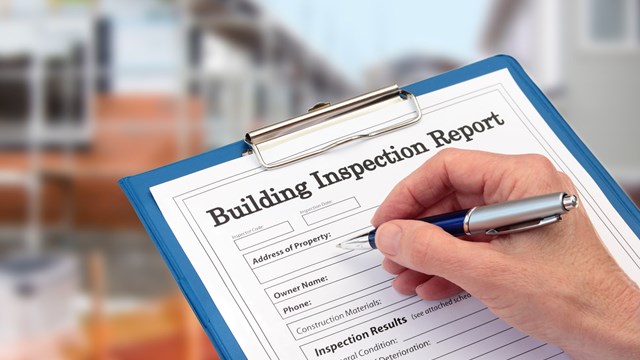
Imagine this scenario: you’re trying to purchase a co-op apartment, but also in the midst of a divorce. The board, concerned you may have to shoulder additional child support and alimony payments, fear that you might be unable to meet your financial obligations to the building, and demand to see your divorce settlement paperwork. As additional reassurance, they also request that you put a year of maintenance payments into an escrow account…just in case.
That was exactly the situation Christine Toes, a New York City associate real estate broker and Citi Habitats vice president, recently navigated with a client. “My customer had two years of payments in reserve, he was putting more than 20 percent down on the apartment, he had a great job history, a credit score of 770 and had a 26 percent debt-to-income ratio.” Still, the board balked.
Jumping Through Hoops
Welcome to the wonderful world of buying a co-op. While condos are by far the more common form of home ownership in New Jersey’s urban and suburban neighborhoods, co-ops are an option that appeals to buyers for an array of reasons. If you are buying a co-op, however, be prepared for a deluge of paperwork, and some serious scrutiny into your personal business.
While New Jersey’s co-op boards are not as notoriously picky and hard-to-please as those on the Upper East Side of Manhattan, for example, co-op buyers must still be prepared to provide boards with a great deal of financial documentation. Everything is fair game, from tax returns, credit reports, investment income statements and pay stubs to letters from accountants, net worth statements, and more. If that’s not good enough, they’ll ask for even more.
“The sky’s the limit—except where it constitutes discrimination,” says Edward M. Taylor, an attorney in Smithtown, New York. “In some cases, [boards have] even asked if a buyer has sufficient health insurance coverage so that they would still be able to pay their monthly maintenance if they need extensive medical care.”
Asking for proof of health coverage represents the more extreme end of the spectrum; what you will actually have to produce for your prospective co-op board depends on the individual building.
“Some boards are easy and just want a tax return, while others ask for a substantial amount of information and even do a credit search to make sure you are credit worthy,” says Attorney John Kwasnik with the law firm of Mezzacca & Kwasnik, LLC in Metuchen.
If everything you provide the board checks out, you’ll move forward toward closing. Any red flags and you will either be asked for further documentation (oh no!), or the board has the right to decline your application.
Is there such thing as a “perfect” prospective shareholder? Not necessarily, say the experts. Every board has their own requirements and someone you’d think from outward appearances would make the ideal financial candidate might not be approved.
Take for example wealthy heiress Paris Hilton, whose bank account leaves many of us green with envy. Let’s say she wants to buy a $1 million co-op in historic Hoboken. Although we don’t have Ms. Hilton’s bank statement or credit report, let’s fictionalize and assume that her wealth comes from trust fund distributions set up by Daddy Hilton. If that’s the case, some of her wealth may be tied up in investments. She might also be overextended financially with mansions in the Bahamas, Las Vegas, Sydney, Australia and Tuscany, Italy. And, other than showing up on the red carpet occasionally and being a rock star’s girlfriend, it doesn’t seem that the young Hilton holds down a paying job. Add in a few credit dings from her party days and the co-op board might stamp her application with a big red NO.
Income Inquiries and Application ABCs
Gathering your paperwork isn’t a job for Superman—it’s a job for the buyer to gather all the necessary documentation that the board will need. He or she should team with a knowledgeable broker who will know what the building’s financial and paperwork requirements are. A strong financial team might also include an accountant who can assist in providing additional financial documentation and an attorney who can answer any legal questions that will inevitably arise, although, Taylor says, attorneys do not assist in compiling applications.
“Assistance from real estate brokers is more common, says Taylor. “They oftentimes will know the building, the managing agent, the board and the application process and can best guide the applicant regarding what needs to be included and what the board is looking for.
“The ultimate responsibility is the applicant’s however,” Taylor continues. “If something is left out of an application, it may delay the process, but that fact alone will not usually lead to a rejection. A denied application will usually be based upon the quality of the applicant and not due to the person who assisted in compiling the documents. And the broker should not be advising a prospective purchaser as to whether he will be accepted by the board. If the purchaser can afford the apartment—either by paying cash or by having been pre-qualified for a loan by a bank—the broker should leave any further screening to the board.”
When it comes to your income, the boards are going to want a lot more detail about where your income is coming from, and what your financial responsibilities are. In our Paris Hilton example, her income came expressly from Daddy Warbucks (although residuals from her time on A Simple Life might be contributing), but she really doesn’t generate much income on her own. This is a huge consideration in the board’s decision-making process.
“The board looks at your overall financial picture,” says Taylor. “If you have one million dollars in the bank but no income, is the interest on that million enough to cover the payments?”
Red Flags
A lack of income continuity can be a huge red flag, but it’s not the only one. There are several things in an applicant’s financial paperwork that can cause the board to pause and take notice:
Severe Swings in Statements: All of a sudden your bank account has gotten $200,000 richer. You can pay your maintenance and then some, but the board questions your account because it may look like you received a one-time loan. Will your account drop next month? Major fluctuations in bank statements and in your income are a definite red flag.
Salary Fudging:During the interview process, you told the board that your job brings in the bucks. Unfortunately, your annual reported income is much more than what appears on your tax return. Congratulations, your might have just fudged your way into a rejection.
“If someone is self-employed, a lot of times they’ll take so many deductions that they are negative in terms of income,” says Taylor. “The financial statements may not show their true financial status.” If this sounds like you, be prepared to prove your income.
Debt Loads: Most buyers have debt, but too much debt might mean that you’re spreading yourself too thin, and this is true even for the high-income folks. A high-income doesn’t guarantee acceptance.
Financial Reference Rejects: You might claim to have made payments in your previous building, but a quick reference check to your previous building proves otherwise. It doesn’t pay to lie.
Red flags are concerns, but it’s important to remember that they do not automatically guarantee that you’re doomed to be on the market looking at other listings. Boards can come back and ask for additional information or documentation. If you have a spot on your application that is of concern, don’t wait for the board to approach you; take the first step and address it head-on.
“Attend the meetings where your application is being heard,” recommends Kwasnik. “Rather than going back and forth, you can be there when they’ve asked the questions and can answer them and get the issues resolved.
For example, remember the sudden $200,000 windfall that appeared in the fictional buyer’s account? Well, if he had been at the meeting, he would’ve been able to prove that it wasn’t a family loan from Aunt Fannie, but a regular trust disbursement that will continue for the next 20 years. The disbursement guarantees the ability to pay maintenance fees and, therefore, this buyer would be welcomed to the building if the board took the initiative to ask. Unfortunately, the board failed to go back to the buyer for additional information and he was rejected.
Although the board may ask for additional proof of financial worth, some individuals—especially high-income buyers—have actually refused to provide the documentation, feeling that the board has enough information to make an informed decision. Refusing the board’s requests doesn’t mean an automatic rejection either, though it isn’t likely to endear a buyer to his or her new neighbors.
Unfortunately, if you are still rejected there isn’t much that could be done under New York law. “Under current law, a co-op a board does not have to give a reason for rejection,” says Taylor, and therefore a co-op usually will not explain its decision. If an applicant thinks that the rejection had a discriminatory basis or that the information requested had a discriminatory basis, they could pursue options for a human rights or discrimination claim under federal or state law.
According to Jonathan Katz, an attorney with the law offices of Stark and Stark in Lawrenceville, similarly, in New Jersey, the Cooperative Recording Act, N.J.S.A. 46:8D-6(l), acknowledges and authorizes a similar approval process so long as the consent to transfer is not unreasonably withheld or would constitute discrimination under federal or state law.
The bottom line to getting approved in one of New Jersey’s co-op communities is to watch your bottom line, get your paperwork in order early and if there are any concerns, address them early on. Before you know it, you’ll be cresting the top of the paperwork mountain, heading into homeownership.
Lisa Iannucci is a freelance writer and author living in Poughkeepsie, New York.






Leave a Comment